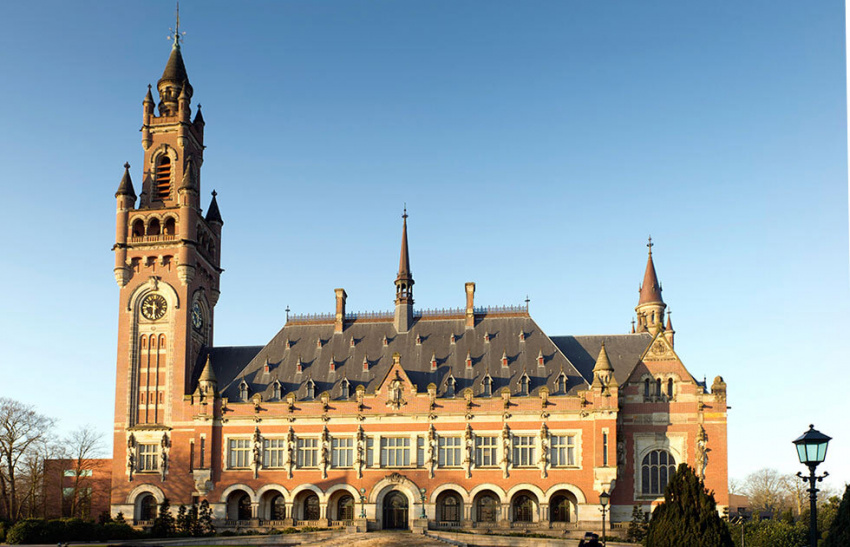Tehran, Washington to fight at ICJ over sanctions

Back in 2018, Tehran dragged Washington to the International Court of Justice (ICJ) after Trump unilaterally pulled the U.S. out of the historic 2015 nuclear deal that was signed under his predecessor Barack Obama.
Following the withdrawal, Washington imposed what it called “the harshest ever sanctions” on Tehran under the banner of a “maximum pressure” policy intended to pressure Iran into negotiating a new deal.
Iran argues that the sanctions brought back by the Trump administration breach the 1955 “Treaty of Amity” between the two countries, signed before the 1979 Islamic Revolution.
In October 2018, Iran won an early victory when the ICJ ordered sanctions on humanitarian goods to be eased until the overall lawsuit is dealt with.
At the time, President Hassan Rouhani Hassan Rouhani termed the ICJ’s ruling as “unique”.
“Our nation has the upper hand politically and legally. The public opinion considers Iran a country which abides by its commitments and the U.S. a country which is not loyal to its promises and violates the international regulations,” Rouhani said.
According to the Associated Press, the U.S. is scheduled to first address the court on Monday about whether judges have jurisdiction in the case, while Iran will speak on Wednesday.
The two sides are also clashing over a separate case over the Islamic Republic’s bid to unfreeze $2 billion in assets frozen in the U.S.
In February 2019, the court gave its go-ahead to the case. It came in rejection of a U.S. claim that the Islamic Republic’s “backing for terror groups” should disqualify its lawsuit.
The nuclear agreement, officially called the Joint Comprehensive Plan of Action (JCPOA), was signed between Iran and six world powers – the U.S., China, Russia, France, Britain and Germany – on July 14, 2015.
All other participants of the JCPOA have strongly opposed the U.S. withdrawal and its reimposition of sanctions on Tehran.
However, the U.S. has not backed down from its unilateral anti-Iran measures. In its latest move, Washington attempted last month to reimpose the UN sanctions on the Islamic Republic.
The U.S. move to trigger what is known as the “snapback” mechanism came a week after its efforts to extend the UN arms embargo on Tehran failed miserably. Only the Dominican Republic joined Washington in voting yes.
The United States argues that it can trigger the sanctions snapback process because the 2015 Security Council resolution still names it as a nuclear deal participant.
However, in a joint letter to the Security Council hours after the U.S. submitted it complaint, Britain, Germany and France said: “Any decisions and actions which would be taken based on this procedure or on its possible outcome would also be devoid of any legal effect.”
Russia and China voiced even stronger opposition to the move.
Source: Tehran Times

